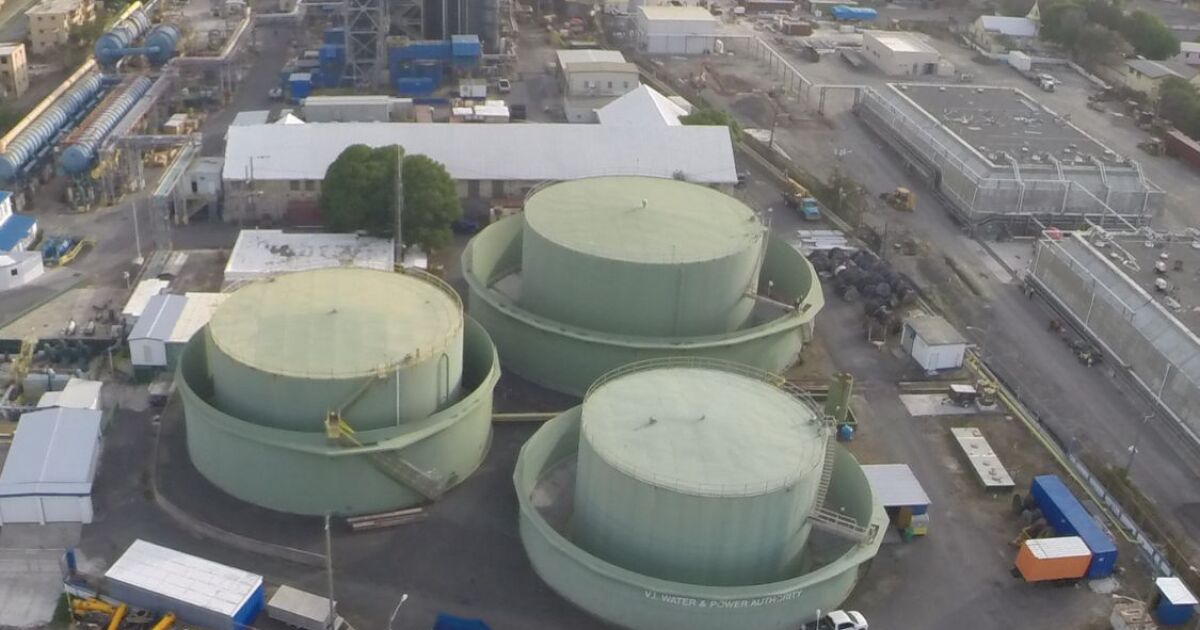WAPA says forced rate cut jeopardizes its ability to pay bills
3 min read

The U.S. Virgin Islands Water and Power Authority said a Public Service Commission order that it lower electric rates may force it to default on obligations to its vendors, contractors and employees.
The commission voted Tuesday to lower the authority’s electrical rates by 5.22 cents per kilowatt-hour, roughly 12%. The commission said it would reconsider rates in about three months. The reduction affects the Electric Levelized Energy Adjustment Clause part of the authority’s rates, which are supposed to cover WAPA’s costs of generating electricity and are to be adjusted according to changes in such costs.
“While the PSC may believe that they are advocating on behalf of ratepayers, the decision by the PSC, made without fully considering the operational and financial consequences, places the authority at risk of defaulting on its obligations to vendors, contractors, and employees,” WAPA said in a statement after the commission’s action. “As we approach hurricane season, already fiscally challenged, it is the people of this territory who will pay the price for the PSC’s unsound decision-making, placing the entire Virgin Islands at great risk.”
The authority said the cuts would cost it about $2.5 million a month. Unaudited fiscal 2023 figures, the most recent available, show this as about 12% of total operating revenues.
“I fully understand the desire to provide rate relief to the customers of the Virgin Islands Water and Power Authority,” stated WAPA CEO and Executive Director Karl Knight. Rate reductions must be done “in a responsible manner that does not immediately jeopardize our ability to provide electric and potable water service in the Virgin Islands.”
The authority asked the commission to immediately reconsider its decision “before irreversible harm is done to the Virgin Islands community.”
At the meeting commissioners called for the authority to proactively manage fuel costs, generation efficiency and operational readiness. The commission said it would open a docket to investigate WAPA’s fuel acquisition practices.
The commission told the authority to provide it with a comprehensive hurricane preparedness plan within seven days.
“We are absolutely strapped for cash, with expenditures greater than our revenues,” WAPA Chief Financial Officer Lorraine Kelly told the commission.
Consultant EY Parthenon told WAPA in January the utility
WAPA signed a two-year contract with its existing municipal advisor, Sustainable Capital Advisors, in March for, among other things, evaluating and executing refinancing and restructuring opportunities. Under this it mentioned, refinancing Series 2021A and 2024A bond anticipation notes and refinancing BANS due July 2026.
WAPA did not respond to questions about refinancing.
Someone who works with an investment firm that owns Virgin Islands central government debt — but not WAPA debt — said Nuveen, which holds the BANs, has been willing to let WAPA refinance its debt. Nuveen didn’t respond to a request for a comment.
WAPA may try to refinance its entire debt stack, said the source, who wanted to remain anonymous.
The biggest concern is that something related to WAPA could affect the U.S. Virgin Islands
In May the source said he didn’t think WAPA would seek legislation to allow it to enter bankruptcy. Currently, the U.S. Virgin Islands isn’t covered by any bankruptcy process.
Even if WAPA were to zero out its roughly $200 million in outstanding bonds and BANs, it would not meet the minimum $375 million infusion the study says it needs, the source said, since the authority has problems with its overall liability size and lack of capital.
While WAPA entering bankruptcy is unlikely, a default in the next few years is possible, the source said.
When Puerto Rico sought the passage of Puerto Rico Oversight, Management, and Economic Stability Act, the U.S. Virgin Islands government lobbied Congress not to be included.







